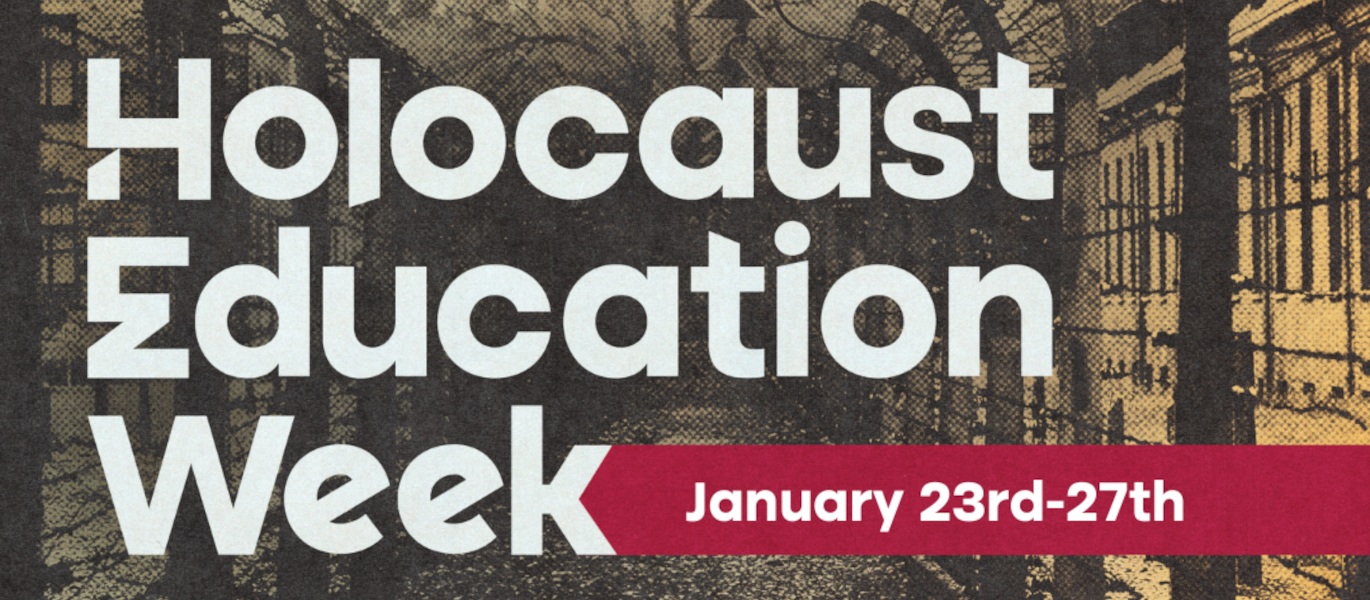During Holocaust Education Week (Jan. 23 to 27), the University community is invited to learn more about the Holocaust, combat antisemitism and hate, and make time for reflection to ensure the lessons of the past are not forgotten.
Hosted by Guelph Hillel, this week-long educational campaign is dedicated to preserving the memory of the Holocaust, raising awareness of its uniqueness in history, and educating the U of G community about the dangers of extremism, intolerance and antisemitism.
Events to mark Holocaust Education Week
All Week
Yad Vashem Exhibit
10 a.m. to 4 p.m.
Monday and Friday – University Centre Courtyard
Tuesday through Thursday – Summerlee Science Complex Atrium
The Yad Vashem pop-up exhibit shares stories of children in the Holocaust. The exhibit will include a resource table led by Hillel students and staff who are available to answer questions, provide more information, and hand out free memoirs to those who attend.
Tuesday, Jan. 24
SpiritualiTEA Exhibit Walk-Through with the Multi-Faith Peer Helper Team
Noon to 1 p.m.
Raithby House
In collaboration with the Multi-faith Peer Helper Team, Guelph Hillel will host a guided walk-through of the Yad Vashem Pop-up Exhibition followed by a multi-faith discussion over tea.
Wednesday, Jan. 25
Doc & Talk: Dear Fredy with Hillel’s Rainbow Jews
5 p.m.
Hillel House (20 Moore Ave.)
Join Hillel’s Rainbow Jews for their Holocaust Education Week screening and discussion of Dear Fredy. Directed by Rubi Gat, Dear Fredy is a documentary following the life of Fredy Hirsch. Living in Nazi-occupied Europe, Hirsch was a proud gay Jew. He ran a daycare centre for 600 kids in Auschwitz concentration camp and fought to his last breath to maintain their human dignity. His death on the eve of a revolt has remained a mystery until this film.
Thursday, Jan. 26
A Holocaust Survivor’s Testimony: with Howard Chandler
5:45 p.m.
Zoom
Friday, January 27
International Holocaust Day Remembrance Ceremony
11 a.m.
UC Courtyard
Shabbat Dinner
7 p.m.
Summerlee Science Complex Atrium
Now, more than ever, learning about the Holocaust and its contemporary relevance is a crucial tool in countering rising antisemitism and hate.
